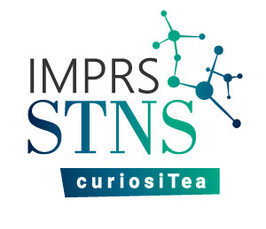Neuromorphic Computing Systems based on Memristive Devices
Zoom Talk
- Date: Jun 30, 2021
- Time: 04:00 PM - 05:00 PM (Local Time Germany)
- Speaker: Wei D. Lu
- University of Michigan
- Location: Max-Planck-Institut für Mikrostrukturphysik, Weinberg 2, 06120 Halle (Saale)
- Room: Online
- Host: IMPRS-STNS

Abstract
Deep Neural Networks (DNN) are widely used for many artificial intelligence applications with great success. However, they often come with high computation cost and complexity. Accelerators are crucial in improving energy efficiency and throughput, particularly for embedded AI applications. Resistive random-access memory (RRAM), a form of memristive device or memristor, has the potential to enable efficient AI accelerator implementation, as the weights can be mapped as the conductance values of RRAM devices and computation can be directly performed in-memory. Specifically, by converting input activations into voltage pulses, vector-matrix multiplications (VMM) can be performed in analog domain, in place and in parallel, thus achieving high energy efficiency during operation. In this presentation, I will first introduce prototype computing systems based on such memristive devices, then discuss how practical DNN models can be mapped onto realistic RRAM arrays in a modular design. System performance metrics including throughput and energy efficiency will be discussed based on analyzing standard DNN models such as VGG-16 and MobileNet. Challenges such as quantization effects, finite array size, and device non-idealities will also be analyzed. Beyond DNNs, the internal dynamics of RRAM devices can be used to natively process temporal data, e.g. performing time series analysis, in the form of reservoir computing systems and 2nd-order memristor networks. Examples of such systems will be discussed, including the potential for efficient bio-electronic interfaces.
Wei D. Lu is a Professor in the Electrical Engineering and Computer Science department at the University of Michigan. He received B.S. in physics from Tsinghua University, Beijing, China, in 1996, and Ph.D. in physics from Rice University, Houston, TX in 2003. From 2003 to 2005, he was a postdoctoral research fellow at Harvard University, Cambridge, MA. He joined the faculty of the University of Michigan in 2005. His research interest includes resistive-random access memory (RRAM), memristor-based logic circuits, neuromorphic computing systems, aggressively scaled transistor devices, and electrical transport in low-dimensional systems. To date Prof. Lu has published over 200 journal and conference articles with 29,000 citations and h-factor of 78. He is a recipient of the NSF CAREER award, an IEEE Fellow, and co-founder of Crossbar Inc, and MemryX Inc.
Zoom access (please access meeting 5 minutes prior to the start) | Meeting ID: 978 3563 0029 | Passcode: 019494